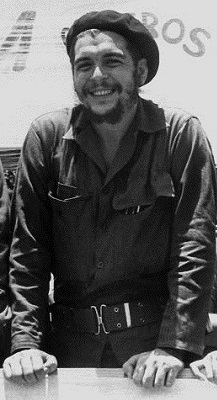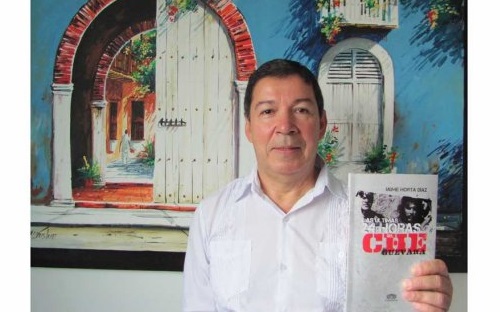|
~ Ernesto Che Guevara
~ Galéria
~ Oldal
~ Bejelentkezés
~ Vissza a Főoldalra
Ernesto Che Guevara, az argentin származású forradalmár, miniszter, gerillavezér és író, Buenos Aires-ben szerzett orvosi diplomát, majd a kubai forradalom során jelentős szerepet játszott a szigetország felszabadításában és újjáépítésében. A kubai gazdaság talpraállításáért dolgozott, küzdött az oktatás és az egészségügy fejlesztéséért, az írástudatlanság és a faji előítéletek felszámolásáért. Saját példájával népszerűsítette az önkéntes munkát. Kongóban és Bolíviában is harcolt - harminckilenc éves volt, amikor az amerikai-bolíviai csapatok csapdába ejtették és kivégezték.
| | |
|

| | |
|
|
Articles about Che Guevara |
|
The last 24 hours of Che Guevara
2014.01.16. 23:48
|

|
|
Last month an article was published on the website of El Espectador, where a new book about Che Guevara was introduced.
The author, the journalist Jaime Horta did a detailed investigation and wrote the story of the last day of the legendary revolutionary's life titled "Las últimas 24 horas del Che Guevara" (The last 24 hours of Che Guevara) - according to him, a new light will be shed on Che's capture and execution, and his good and bad side.
Horta had been collecting the copies of the American magazine, Life and when he read the article about Che's death and its circumstances in 1967, he became really interested in the guerrilla leader. In his opinion, a ransom of 40 million dollars could have saved Che's life, who remained faithful to Fidel Castro till the last moment of his life - while Castro left his friend alone and didn't save him out of Bolivia.
Che's last 24 hours were characterised by pain, humiliation and cruelty. According to Horta, Che was afraid, he regretted having been captured alive, but till the last moment he was so sure that his death would never be futile.
Source
|
| | |
|
|
|
~ Ernesto Che Guevara
~ Gallery
~ Site
~ Log in
~ Back to the Main page
Ernesto Che Guevara, the Argentine-born revolutionary, minister, guerrilla leader and writer, received his medical degree in Buenos Aires, then played an essential part in the Cuban Revolution in liberating and rebuilding the country. He did his best to set up the Cuban economy, fought for the improvement of the education and the health system, the elimination of illiteracy and racial prejudice. He promoted voluntary work by his own example. He fought in the Congo and in Bolivia - he was thirty-nine years old, when he was trapped and executed by the joint American-Bolivian forces.
| | |
|
|

